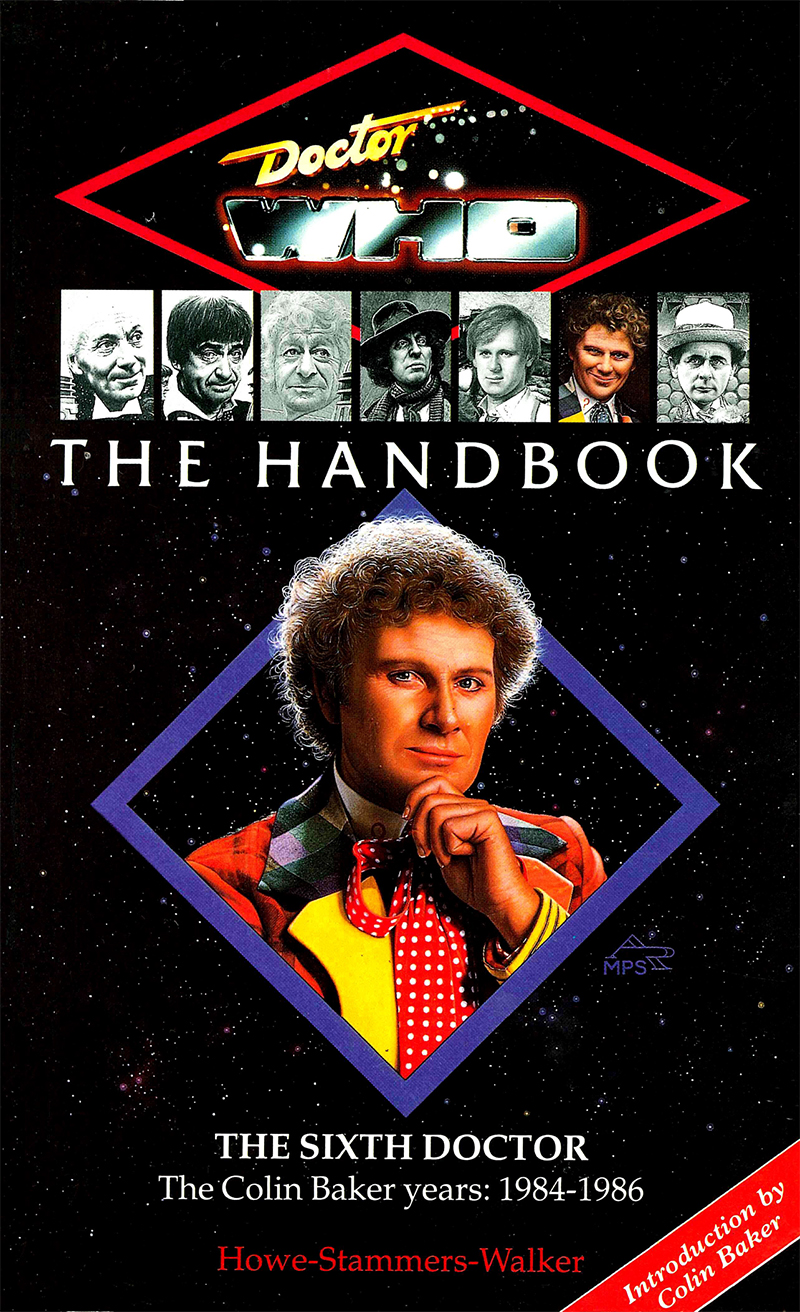 Story: In only the second volume of the outstanding series of non-fiction Doctor Who Handbooks, the troubled reign of Colin Baker, the sixth actor to play the role of the Doctor, is covered. From the inception of this new take on the character, to the cancellation that aborted an entire season about to enter production (and forced the show’s makers to hastily concoct a new series of stories in its stead), to the untimely termination of Baker’s contract, the tumultuous three-year period is examined, even including a glimpse at some of the plans that were in place had he continued in the role.
Story: In only the second volume of the outstanding series of non-fiction Doctor Who Handbooks, the troubled reign of Colin Baker, the sixth actor to play the role of the Doctor, is covered. From the inception of this new take on the character, to the cancellation that aborted an entire season about to enter production (and forced the show’s makers to hastily concoct a new series of stories in its stead), to the untimely termination of Baker’s contract, the tumultuous three-year period is examined, even including a glimpse at some of the plans that were in place had he continued in the role.
Review: Perhaps the single most fascinating volume in the Handbook series, the Sixth Doctor Handbook finally dishes up some long-overdue behind-the-scenes dirt on the most troubled phase of the show’s history.
Normally, I’m not up for a lot of gossip in books like these, but let’s face it, the Colin Baker era has so much drama in it – not counting that which wound up on videotape or film – that it’s hard to sidestep it. This book tackles it head-on, and at least the authors do it fairly – the factual narrative remains unbiased, and points out the various reasons that were given by the parties in power at the time of both the cancellation and Colin Baker’s dismissal. In the same spirit of that fairness, the authors tried to interview as many people on either side of the issue, the most visible interviewee being script editor Eric Saward, who left his post suddenly in the middle of the making of the Trial Of A Time Lord season.
Some of the most fascinating material covers episodes never made. The unmade season 23 episodes are discussed in depth, including those which haven’t been novelized. Apparently, the first of those stories was only a week away from going before the cameras when the order came from BBC 1 Controller Michael Grade to end the show (the same Michael Grade, incidentally, who has been recently installed as the BBC’s Director General now that Doctor Who is back in production, just in case you still need a reason to feel nervous about the future of the show). And even when the eventual shape of that season was decided, there were some stories that were still rejected – some of them, from the thumbnail story sketches offered, that sounded positively surreal. And this theme continues with a discussion of where the show could have gone with Baker still on board as the Doctor, with an intentional arc to soften his quirky character following the sixth Doctor’s introduction as a borderline unlikeable character. To some degree, one can credit Big Finish Productions and their audio adventures for demonstrating how successful – and likeable – Baker’s Doctor could have been.
A secondary focus is given to Nicola Bryant who, as Peri, arguably shared a greater percentage of screen time with Baker than any other Doctor/companion combination before or since. Bryant discusses her likes and dislikes about the role and the show with candor – she enjoyed it tremendously, though she admits that her character was impractically costumed and implausibly written.
An absolutely gripping read, this one – part of me thinks there’s almost a great fictional story waiting to be written about this amazingly troubled period in the history of a beloved TV icon, only some of the twists and turns as they actually happened would probably be edited out of a screenplay for sheer implausibility. One has to read it to believe it.
Year: 1993
Authors: David J. Howe, Mark Stammers, Stephen James Walker
Publisher: Virgin
Pages: 250

